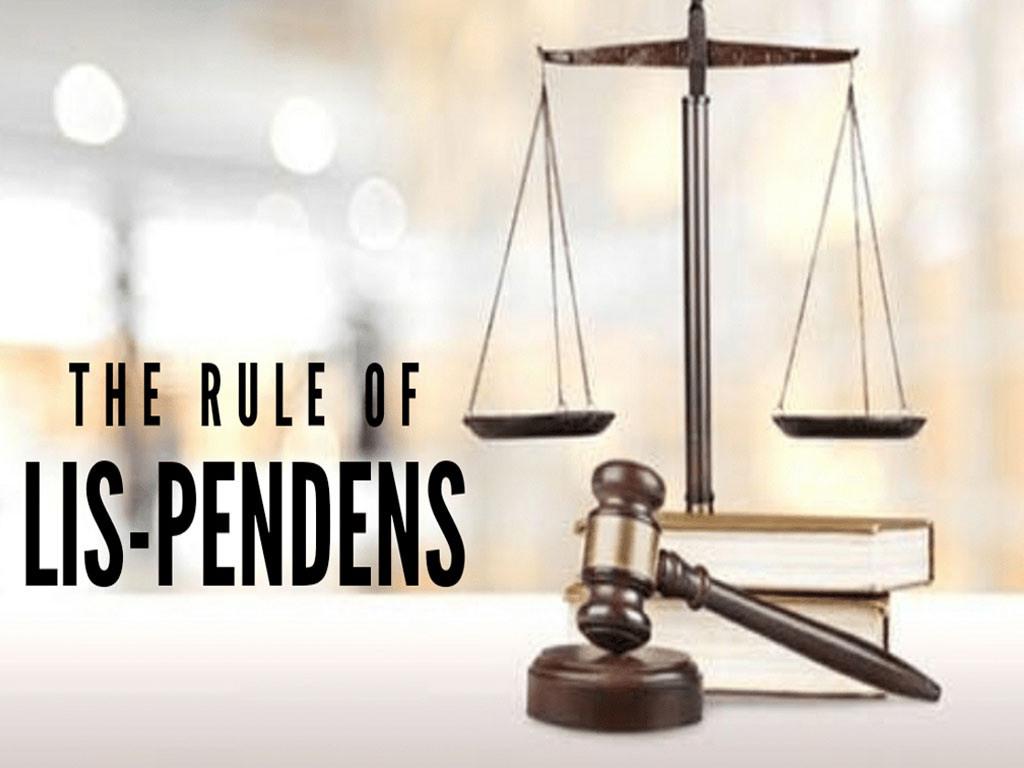LIS PENDENS
What does the term “lis pendens” mean?
The term lis pendens means a pending legal action. The term “lis” means “the suit” and the term pendens means “Continuing or pending”.
What is the doctrine lis pendens derived from?
It is derived from the legal maxim “Ut Pendente Nihil Innovetur”.
What is the principle around which the doctrine is based on?
The principle embodying the said doctrine is that the subject matter of a suit should not be transferred to a third party during the pendency of the suit.
What is the aim behind the doctrine of lis pendens?
- It aids in avoiding endless litigation
- It protects either party from litigation against the act of the other.
- It aids in avoiding abuse of the legal process.
Under which section is the doctrine of Lis Pendens based on?
As per Section 52 of the Transfer of Property Act, when a case relating to an immovable property is pending before a competent court of law, the immovable property cannot be alienated.
Can the doctrine of Lis Pendens be applied in all instances?
No, Lis Pendens is not applicable in all instances. There are certain instances where it does not apply, these include:
- A sale made by the mortgagee in the exercise of the power as conferred by the mortgage deed.
- In matters of review, In cases where the transferor is the only party affected.
- In cases of friendly suits, In cases where the proceedings are collusive
- In case of suits involving pending transfers by a person who is not party to the suit, In cases where the property has not been properly described in the plaint.
- In cases where the subject matter of rights concerned in the suit and that which are alienated by the transfer are different.
Gowtham
3rd year
Sathyabama

